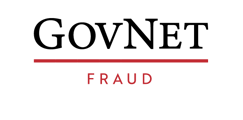The story of corruption is almost as old as humanity itself. It’s often accepted that corruption originated in ancient Egypt in 3100BC and fraud in Greece in 300BC. In some cases, it’s been allowed to thrive. Corruption is every bit as human as we are, and while we cannot change humanity or human behaviour, we can close the gaps that allow corruption and opportunism to happen in the first place.
It’s easy to allow corruption to flourish when it is kept in the shadows and not spoken about, so accepting its existence is the first step. The COVID-19 pandemic expanded the opportunities for corrupt activity worldwide and acted as a stress test for anti-corruption policies and controls across the globe. One of the many lessons we must take from the pandemic is that continually revising processes and risks is essential.
Another important thing to consider when setting anti-corruption strategies is to recognise that all markets, governments, organisations and cultures face different levels of exposure to fraud and corruption. We must not be blind to the fact that corrupt behaviour can, and often will, happen. Rather, we must be familiar with, and focused on, the particular risks faced by our own organisation.
CIPFA’s recent anti-corruption compendium identifies nine key areas that should be focused on to tackle corruption, and one of these is prevention. The compendium provides many case studies and examples of best practice to illustrate how various anti-corruption prevention strategies can be used in organisations.
As soon as money is lost to fraud and corruption it sets off a vicious circle of wasting time and resources to recover those funds. It is much more strategic and cost effective to stop fraud and corruption occurring in the first place, although this will also take time and money. It is everyone’s responsibility across public sector bodies to help prevent it – from leadership to frontline staff.
Prevention strategies need to be understood across all organisational levels and job functions. Consistency and simplicity are key, and strategies need to be adaptable so organisations can respond quickly to evolving threats and risks.
Embracing new technology, embedding risk assessment in the corporate risk register and education and training are all effective prevention activities that can seriously blunt the opportunities for corruption to take place.
Fraud in the public sector leaves the taxpayer as the victim. It is their hard earned money that is being lost, and every pound lost to fraud is a pound not spent on improving public services.
Unfortunately, we will never be able to wipe out corruption, it will be with us until the end of time. So, rather than let it thrive in the shadows, we must expose it to the light and make it easier to confront.
CIPFA offers a range of counter fraud and anti-corruption training. Visit the CIPFA website for more information.
Marc will be speaking about fraud prevention at GovNet’s ‘Counter Fraud conference’ on the 22 February 2023.
Related Posts:

Marc McAuley, Head of Counter Fraud Operations, CIPFA
Marc is the Counter Fraud lead for The Chartered Institute of Public Finance and Accountancy (CIPFA) and is CIPFA’s representative on the Fighting Fraud and Corruption Locally Board, the UK government’s Cross Sector Advisory Group and the CCAB’s Economic Crime Panel. He has been an accredited counter fraud specialist since 1998 with over 24 years’ experience of counter fraud work in the public sector. Prior to joining CIPFA in 2017, Marc was Counter Fraud Group Manager at Waltham Forest Council. Passionate about making a significant impact in the fight against fraud, Marc helps his customers develop and implement strategies to tackle fraud – in terms of both prevention and recovery.


